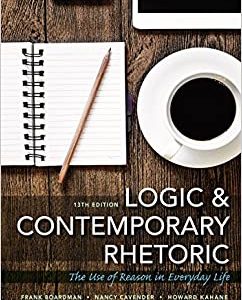Environmental Regulation Law, Science, and Policy 8th Edition by Robert V. Percival
By: Robert V. Percival; Christopher H. Schroeder; Alan S. Miller; James P. Leape
Publisher: Aspen Publishers
Print ISBN: 9781454882114, 1454882115
eText ISBN: 9781543813449, 1543813445
Edition: 8th
With this version of Connected Casebook, receive access to the online e-book, practice questions from your favorite study aids, and an outline tool on CasebookConnect, the all in one learning solution for law school students. CasebookConnect offers you what you need most to be successful in your law school classes?portability, meaningful feedback, and greater efficiency. This ebook includes an access code to redeem on CasebookConnect.com.
Environmental Regulation: Law, Science, and Policy, Eighth Edition by Robert V. Percival, Christopher H. Schroeder, Alan S. Miller, and James P. Leape, provides comprehensive and easy-to-understand coverage of the entire field of environmental law. It focuses not only on the substance of the environmental statutes, but also on the policies they seek to implement, how they are translated into regulations, and the factors that influence how they affect real-world behavior.
Key Features:
Explanation of the initial impact of President Trump?s efforts to sharply reverse environmental policy, including use of the Congressional Review Act to veto regulation
Coverage of lead poisoning in Flint, Michigan and the Safe Drinking Water Act
Coverage of the Paris Agreement on climate change and President Trump?s decision to withdraw from it
Effective teaching and study aids mapping the structure of each environmental statute, real-world-based problems and questions, and ?pathfinders? explaining where to find crucial source materials for every major topic
the Supreme Court?s Murr v. Wisconsin decision and its impact on regulatory takings doctrine
Explanation of the DC Circuit?s August 2017 decision requiring consideration of climate change in pipeline licensing decisions
Self-contained chapters, written in a style accessible to the non-specialist, that also afford instructors flexibility in organizing courses.











